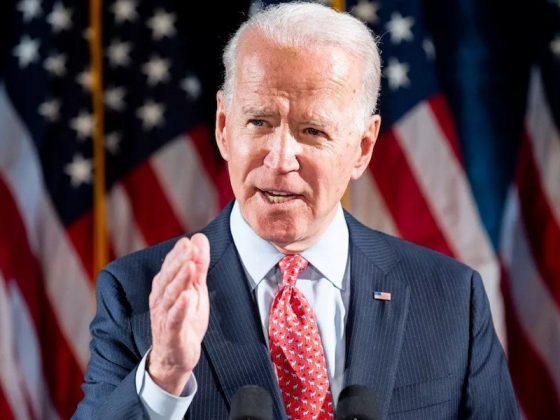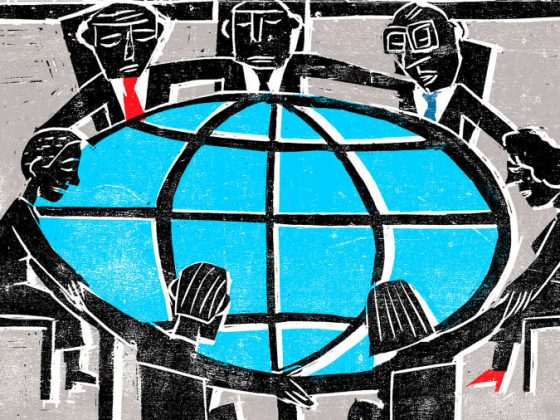How does COVID-19 impact the pattern of international relations, and what will the post-pandemic world order be like? This article takes a future focused and change-seeking perspective to assess how New Zealand and the global community can better prepare for a post-pandemic era. It can be anticipated that the status and priority of ‘non-traditional security’ will be elevated as the global governance system being adjusted at a faster pace.
In the heated debate on anti-globalization, the political ecology of some countries has undergone significant changes, including the return of identity politics, the generalization of security concepts, and the rise of protectionism. Global governance was already facing massive challenges, multilateralism was under siege and the deficit in public goods was widening. However, this COVID-19 pandemic has just amplified these changes, and at the same time spawned new ideas and solutions to reshape the international pattern. The influences of the pandemic on the international community are highlighted by the following four changing situations.
1. Economic Impacts
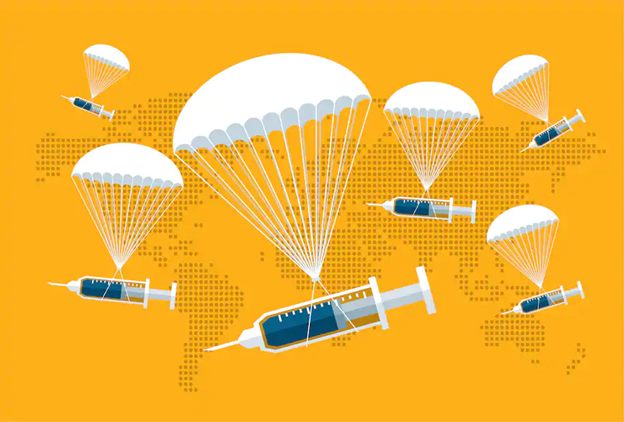
Firstly, the COVID-19 outbreak has hit the world economy hard triggering a global economic recession. Traditional controls like limiting the mobility of economic activity, compression of the consumer market, and cutting off the supply chain of economic services have succeeded in buying time for anti-pandemic measures, but generally have a detrimental impact on economic growth.
Extraordinarily the G20 Leaders’ Summit Statement on COVID-19 stated that the G20 is injecting over $5 trillion into the global economy to counteract the social, economic, and financial impacts of the pandemic. But with advanced economies such as Europe, the U.S., and Japan entering an era of negative interest rates, their ultra-loose monetary policies in response to the downturn could lead to competitive devaluations.
Regarding fiscal policy, the global financial crisis in 2008 and the European debt crisis in 2010 erupted one after another, leaving the government debt level of developed countries mostly high. The stimulus fiscal measures taken in coping with the pandemic could further induce the government debt crisis.
In response to the pandemic, the US Federal Reserve cut interest rates to essentially zero (twice) and launched an unlimited quantitative easing program to shelter the economy from the effects of the virus. However, the fairly aggressive moves didn’t prevent the US stock market from experiencing four meltdowns within 10 days in March, highlighting the potential structural risks in its financial system that are likely to lead to the outbreak of systemic risks in the entire economic system.
In the post-pandemic world, globalization will not reverse, but the pace and paradigm will be adjusted. The scale of global trade and investment will shrink. WTO has predicted that global trade will decline by 13-32% this year, but it will ultimately be subject to the rationality of the market economy and the profit-driven nature of capital.
2. Rising Nationalism and Isolationism
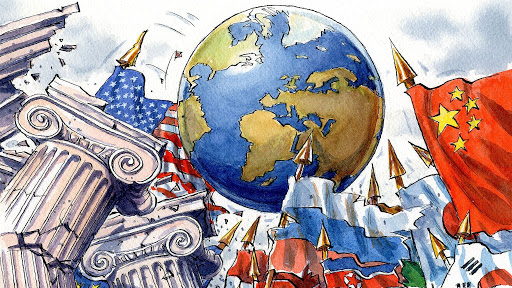
Secondly, the COVID pandemic has intensified existing nationalist tendencies and anti-globalization trends in some countries. For some developed countries with a strong internal anti-globalization voice, the pandemic has become another weapon to resist globalization to go with existing attack vectors such as opposing trade imbalances. The virus does not recognize national borders but has regional characteristics. The pandemic has exposed the fact that the further the distance between the production base and consumer markets and the more decentralized the layout, the greater the risk.
The large-scale shutdowns and the difficulty in the synchronous resumption of work and production have aggravated the dilemma of economic recovery. The partial rupture of industrial and supply chains has exposed the fragility of the foundations of the global economy that is determined by comparative advantage and market principles.
This vulnerability, amplified by the general shortage of medical protective supplies, will strengthen the awareness of the potential fragility of the existing global supply chain and the ideological orientation of industrial adjustment already planned by some countries before the pandemic. However, it will also accelerate the localization and centralization of global industrial chains.
This means that the economic foundations of globalization will undergo a profound transformation. Countries will increasingly favor industrial policies that are less dependent on the outside world, although this policy trend may bring economic, social, and even political costs. The adjustment in direction of the industrial layout to maintain economic security will be especially pronounced in emerging and strategic sectors. However, it should be noted that it’s difficult to bring back all the enterprises, even most of them. Those enterprises at the top of the industrial chain generally benefit the most. In the future, the international supply chain will be shortened to protect the safety of key necessary links. In other words, moving some of the core parts inward, narrowing the gaps between links, and concentrating the main supply on a few nodes will be the trend.
3. Increased Inequality

Thirdly, the global polarization between rich and poor is more acute under the pandemic. While COVID has raised the major issue of strengthening regional and global governance in the field of public health, it also poses challenges around issues such as global population mobility and global food supply.
In the post-pandemic world, acquiring and maintaining ‘life security’ will become a new driving force for future global population movements. The trend of populations moving from countries with inadequate health-care capacity to countries with better medical services will be greatly enhanced after the pandemic.
For this reason, the situation of millions of refugees on the border between Greece and Turkey will be of more concern, and the immigration crisis from Central America to Mexico and the USA, and from the Middle East and Africa to Europe will likely intensify again.
The suspension of economic activities, the interruption of logistics supply, and the restrictions on the export of agricultural products by some countries will also increase the likelihood of a global food crisis. The UN World Food Programme has warned that COVID-19 could cause famine in more than 30 countries by the end of 2020, raising the number of hungry people in the world by 130 million.
How to adequately reflect more of these security dimensions within the framework of advancing sustainable development, will likely be the main direction of global governance reform in the post-COVID-19 world.
4. A New Multilateralism
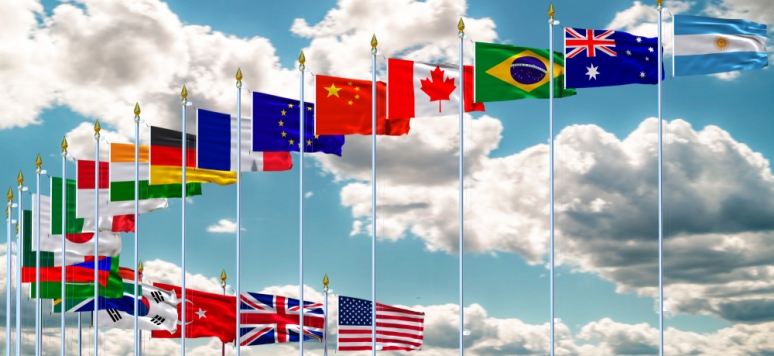
Finally, the traditional multilateral cooperation mechanisms of the current liberal rules-based order cannot effectively address the challenges of the global governance gap. Existing cooperation frameworks have failed to respond adequately to the pandemic. On the whole, the UN, the WTO, the IMF, the World Bank, the G20, and other international organizations have generally said more than they have done. At least in the short term, they have not effectively established a worldwide united front against the pandemic.
The global crisis represented by COVID-19 cannot be resolved by relying solely on existing multilateral mechanisms. Moreover, participants in global governance and their perceptions of development issues have undergone fundamental changes since the creation of these rules. This can be seen from the stagnation of Doha Round negotiations in multilateral trade and the withdrawal of the U.S. from the Paris Agreement on climate change. In the future, the practice of national policies guided by nationalism will continue to erode the willingness and foundation of international cooperation in global governance. The established global governance system will find it increasingly difficult to operate, however, no in-depth institutional reform to this system is likely to be agreed on or implemented immediately.
The rapid spread of this pandemic within a short time-frame has breached the limits of global governance capabilities, resulting in the deterioration of the global governance deficit into a global governance gap.
Despite this, the Extraordinary G20 Leaders’ Summit Statement on COVID-19 has played a positive role in easing market panic over the current global governance gaps in:
- the health security gap between the demand for medical supplies and the shortage of supply capacity;
- the information gap between scientific information on disease prevention and control and the proliferation of negative and misleading reporting in mainstream media and social media; and
- the policy gap between massive monetary easing policies and drastic unstopping volatility in financial markets
However, the G20 will struggle to play as powerful a constructive role as it did in the 2008 global financial crisis.
The Solution – More Interconnection and Interdependence
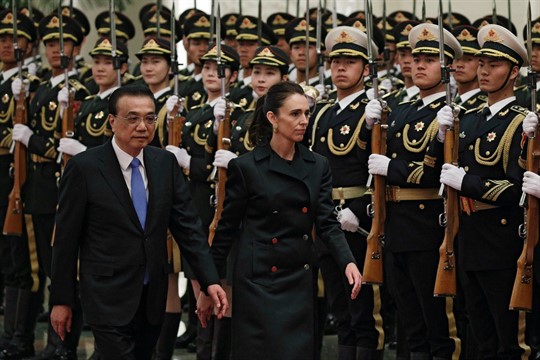
Given that interconnection and interdependence are already a defining feature of the contemporary world, short of a complete societal collapse, it seems unlikely for globalization to be completely reversed and for the world to retreat to tribal isolationism.
The pandemic has stimulated populism and racism, undermining the balance of governments’ capacity to govern and participate in the international system. In some countries, not only their own governments’ ability to cope with the pandemic is being seriously questioned by the public, but also their faith in the political leadership on the international stage has been severely weakened.
As the pandemic has changed the way of communication, while diplomatic activities have stagnated, more intense public discussion and societal interaction between governments will become the concentrated embodiment of international political confrontation during the pandemic. The maintenance of regime legitimacy and the enhancement of dominance in international politics centered on the pandemic response, which is to provide the reasoning and effects of policy and behavior during the crisis, will become the main battlefield of international discourse power, soft-power rivalry, and even comparison of the political system in future.
States that can deal with the crisis more effectively will have the advantage of voice. But some will also try to diminish the advantage of others by sloughing off their responsibilities and politicizing the pandemic through shifting narrative directions and improving narrative techniques.
The basic dividing line in effective responses to this crisis is not between Eastern autocracy and Western democracy. The key determinant of performance is not regime type but state capability, and especially the public trust in their government. The understanding of the pandemic should go beyond the narrow concept of “East-West” and “autocracy-democracy” in traditional international politics.
The reset of globalization and global governance, the acceleration of great power competition and multi-polarization, and the return of realism in the scope of influence held by great powers will become the keynote of international relations in the coming period.
Science, technology, and industry policy, the protection of intellectual property, as well as international rulemaking, will become primary domains of contention. In the post-COVID-19 order, what the world needs to deal with at the international political level are:
- whether the modification of globalization will lead to a complete decoupling,
- whether the political mutual trust can be restored before sliding into a state of disordered big power game, and
- how to establish a new widely accepted game rule in the world amidst the transformation of globalization and the enhancement of multi-polarization.
Despite the world confronting the compound challenges posed by the pandemic, some countries, at the behest of lobbyists and industrial leaders, seem to be preparing for a new round of big power games, or even a new cold war. However, the trauma and lessons experienced as a result of this crisis offer us some important lessons for effectively responding as an international community to the next pandemic, or the even more urgent crises of Climate change and ecosystem and food system collapse. As such, reforming the global governance system should be the primary goal and highest priority for international actors to pursue.
We can seize on the aftermath of this painful experience as a catalyst to create a new international rules-based order that more effectively and fairly upholds the highest values agreed upon by the international community and all citizens around the world.


